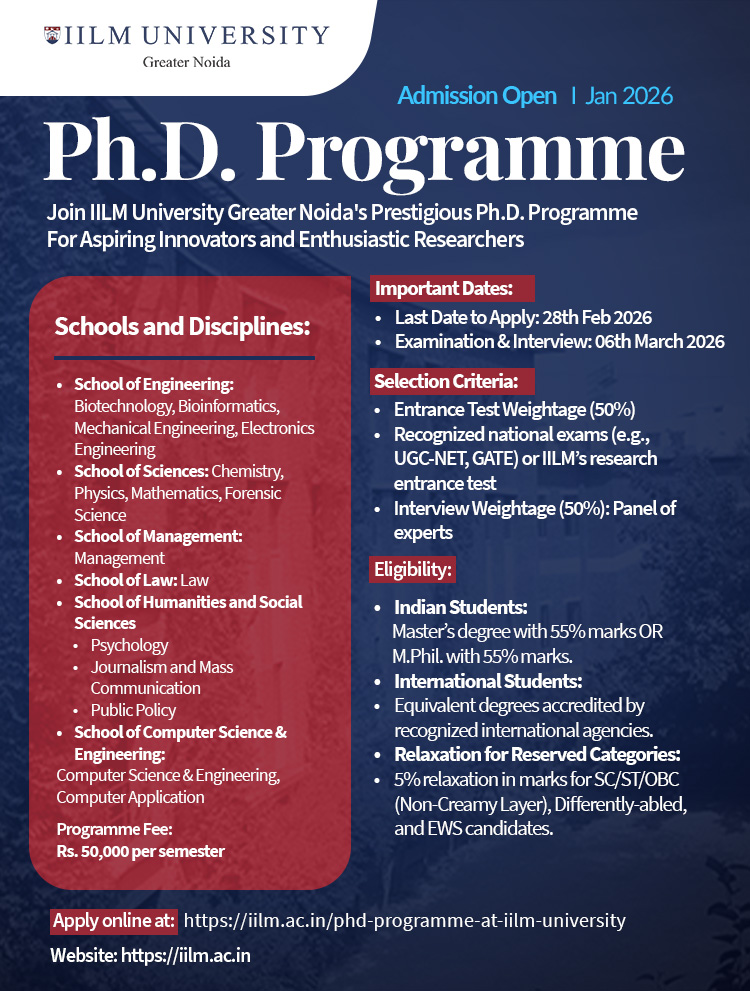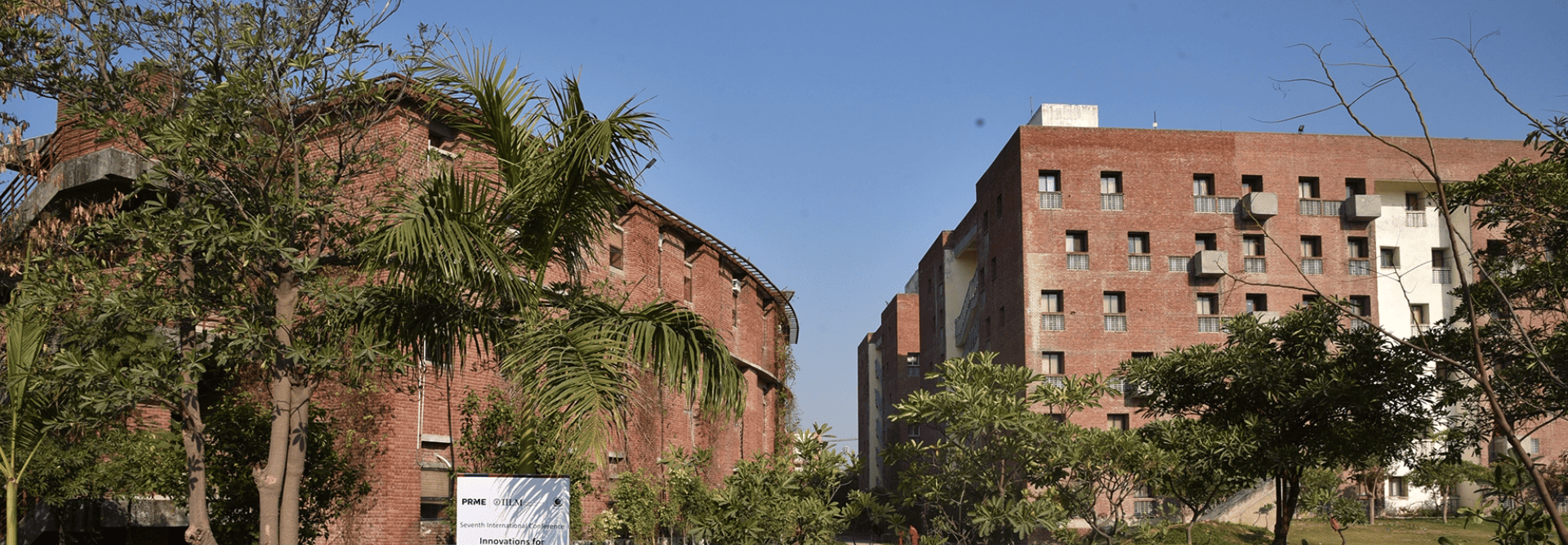
IILM Law School’s BA LLB (Hons) programme prepares students for a rapidly evolving society and future workplaces. By combining Liberal Arts with Law, it promotes interdisciplinary learning, covering subjects such as philosophy, jurisprudence, socio-psychology, economics, trade, and human development.

Graduates will acquire a broad understanding of core legal principles, providing them with the foundational knowledge to succeed in various legal and law-related careers.
Through internships, legal clinics, and moot court participation, graduates will develop practical skills that enable them to effectively apply legal theories and principles to real-world situations.
Graduates will possess the ability to effectively communicate legal concepts, advocate persuasively in various forums, and engage in legal writing with clarity and precision.
Students will be equipped with the ethical frameworks needed to practice law responsibly, ensuring they uphold integrity, fairness, and justice in their professional lives.


Delivering quality education with a legacy of three decades.

A strong, supportive alumni community spread across the globe.

Partnering with renowned global institutions for a holistic education experience.

Connecting students with leading employers for rewarding careers.

Eco-friendly campuses situated in prime, accessible locations.

Recognising and rewarding academic excellence with financial support.

Learn from experts with rich academic and industry experience.

Experience an engaging and dynamic environment both inside and outside the classroom.

A curriculum designed to meet global standards of education and practice.
Completion of 10+2 from a recognised board in India or overseas with at least 50% aggregate marks.
Business Law & Corporate Governance
Students learn about the legal principles governing business operations, including contract law, business structures, and commercial transactions.
Intellectual Property Rights
Students explore the legal protection of intangible assets, such as patents, trademarks, copyrights, and trade secrets. They delve into intellectual property law, including the process of obtaining and enforcing rights, and its significance in innovation and business strategy.
Alternative Dispute Resolution Framework
Students study methods for resolving conflicts outside traditional litigation, including mediation, arbitration, and negotiation, while exploring the benefits and limitations of each approach.
Information Technology Law
This elective covers legal issues related to technology, including data protection, cybersecurity, intellectual property in the digital realm, e-commerce regulations, and privacy laws.
Human Rights Advocacy & Gender Justice
Students examine human rights instruments and conventions, analyse case studies of violations, and explore advocacy strategies to tackle gender-based discrimination and violence.
Constitutional Law
Students study the principles, doctrines, and interpretations of constitutions, covering fundamental rights, government structures, and the relationship between branches of government.
Criminal Justice System
This elective explores the institutions involved in criminal justice, including law enforcement, courts, and corrections, while examining their role in maintaining public safety and justice.
Citizenship & Immigration Laws
Students investigate legal frameworks surrounding citizenship, immigration, and deportation, focusing on the rights and regulations for both citizens and non-citizens.
Sports Law
This elective focuses on legal issues in the sports industry, covering areas such as contract law, labour law, antitrust, and intellectual property as they apply to athletes, agents, and sports organisations.
Artificial Intelligence
Students explore the legal and ethical implications of AI technologies, including regulations governing their development and use.
